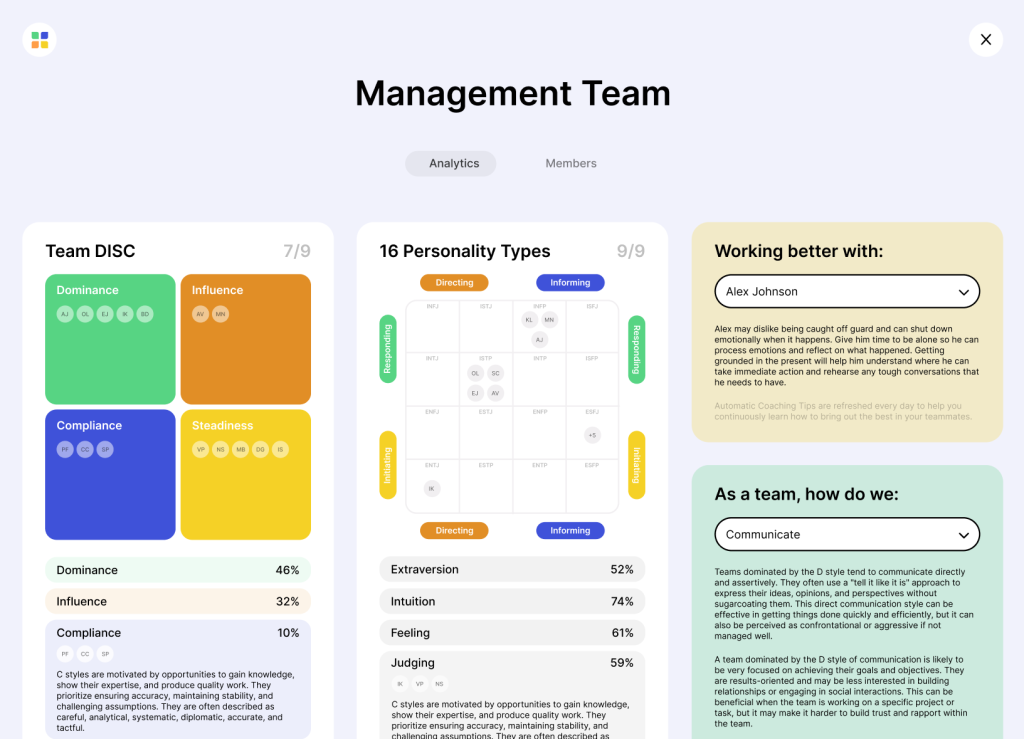The ESFJ are just one of the sixteen personality types identified by psychoanalyst Carl Jung. They are often referred to as the Consul or the Provider since they enjoy taking care of others and putting others’ needs and safety above their own.
These people are attentive, detail-oriented, and love to socialize. As with each MBTI type, the ESFJ personality is further divided into two subcategories: the turbulent (ESFJ-T) and the assertive (ESFJ-A). There are key differences between the two types of Consuls. Those who are assertive are less likely to regret their decisions, while turbulent individuals are more easily stressed.
The turbulent ESFJs are also more prone to staying in relationships for the sake of their partner. But, there are lots of other differences between these two ESFJs. Read on to explore these differences, as well as learn about how turbulent and assertive Consuls work and communicate with others.
The two types of ESFJs each have their own unique qualities, some of which differ from one another. The following is a short list of these differences:
Friendships
When it comes to social pressures, the two types of ESFJs react differently. Turbulent consuls are less likely to state they disagree with a group for the sake of keeping the peace and not being signaled out.
On the other hand, assertive people are more likely to stand up for their ideas, even if it means awkward disagreement. In general, assertive Consuls do not care much about their friend’s beliefs. They care about their social status, but nowhere near as much as their turbulent counterparts.
Also, turbulent Consuls are more likely to promote themselves in their friendships, seek compliments to reassure themselves, and are more likely to get offended/hurt by criticism for their acquaintances. Assertive types still wish to maintain strong friendships but are not afraid of losing a friendship after expressing their own views.
Relationships
ESFJs with the turbulent trait may change their opinions to avoid conflict with their spouse. They make concessions at a far higher rate when compared to assertive people. Turbulent Consuls require approval and support from their partner, while the assertive individual is more independent and less sensitive.
This does not mean that ESFJ-As want to be isolated; they are still immensely extroverted and enjoy the presence of their spouse, but they do not need as much attention from them. ESFJ-Ts may hold on to their relationships even when they are no longer beneficial because they are afraid of hurting others.
The ESFJ in relationships, no matter which subtype, are supportive of their partners, gentle, sociable, and reliable.
Workplace
ESFJ strengths prevail in a multitude of ways when it comes to the workplace. If the ESFJ-A makes a mistake or gets hurt at work, they will try to swiftly move on and continue working. However, ESFJ-Ts may hold on to these hurt feelings.
While both Consuls tend to be more self-disciplined than the average population, turbulent Consuls often believe they are not disciplined. They may see negative values in themselves, which comes into play negatively when one is trying to keep themselves motivated at work.
Working in a Team
The ideal team for a turbulent ESFJ is one that is supportive and helps them maintain strong relationships. They value being able to help others and improving the world around them. When working with the ESFJ-T, ensure to affirm their value to the team and challenge their negative views of themselves.
Assertive ESFJs, on the other hand, rarely need to be reminded to let go of negative feelings. This type believes the best way to get over emotions is to ignore them and move on. They should be allowed to power through their work without recalling any regrets. ESFJ-As react as they wish when confronted with conflict, so they may not be as regulated as the ESFJ-T.
ESFJ-A Strengths and Weaknesses
The assertive ESFJ strengths are unlimited. One of the most common skills this personality subtype possesses is being able to focus on the good in life. They do not worry about their missteps or dwell on their regrets.
Additionally, they do not like to feel negative emotions for long periods of time. They will try to ignore these feelings and move on as soon as possible. While this could be beneficial at times, it could also lead to suppressing one’s emotions.
Assertive Consuls are the more confident subtype of ESFJs. They are prone to having bold beliefs and standing up to their values comes naturally for them.
Taking on life’s difficulties is viewed as just another task by the assertive type. It is easier for this type of ESFJ to find motivation in their life and are also less sensitive than ESFJ-Ts.
ESFJ-T Strengths and Weaknesses
This personality has their own set of ESFJ flaws and strong points. For instance, the ESFJ-T dislikes going against social norms and/or disagreeing with others. This does lead to less conflict, but could also mean the individual is less satisfied with their lives.
It is harder for this personality type to let go of their anger or sadness. They may take prior conflicts into account when making decisions, making them less objective.
Turbulent Consuls are more likely to regret their behavior. They find it difficult to overcome their feelings. They may stay with people even if the relationship turns out to be negative. This is so because they do not wish to hurt the other party’s feelings.
Jobs and Careers for the ESFJ-T
Turbulent ESFJs perform best in more peaceful and controlled settings. They enjoy being able to communicate with others and using their interpersonal skills for the good of the community. Structure and organization is another key priority for the ESJ-T’s job. However, high stress jobs or highly independent careers are not the best match for this personality type.
However, these ESFJ career paths could suit most turbulent Consuls:
- Dietician
- Physician assistant
- Counselor
- Dental hygienist
- Optometrist
- Caterer
- Respiratory therapist
- Speech pathologist
- Physical therapist
- Insurance agent
Jobs and Careers to Avoid
There are a few key career elements that turbulent Consuls should avoid. Stressful and ever-changing environments are not the best for this MBTI type. ESFJ-Ts are also not the most independent individuals, and they prefer a strong support network to solo work.
Specific careers to be avoided include: investment banker, actor, airline pilot, power plant operator, and recreation worker.obs and Career Path for the ESFJ-A
ESFJ-As are less risk-averse and more confident. They stand up for their values, even if it means upsetting a few people. Additionally, they are more comfortable with making decisions and leading others.
A few jobs that assertive ESFJs should consider are:
- HR manager
- Surgeon
- Hotel manager
- Public relations manager
- Event coordinator
- Real estate agent
- Insurance agent
- Dentist
- Family physician
- Advertising sales agent
Jobs and Careers to Avoid
ESFJ-As do not like to be silenced or bored at work. They prefer a more exciting lifestyle and enjoy seeing the tangible fruits of their labor. Also, they enjoy being strict and do not like vague tasks. ESFJs generally like working with others, but ESFJ-As also like to hold their own unique opinions.
Jobs that may not be the best for assertive ESFJs include: farmer, electrician, editor, chemist, tech support specialist, and computer programmer.

